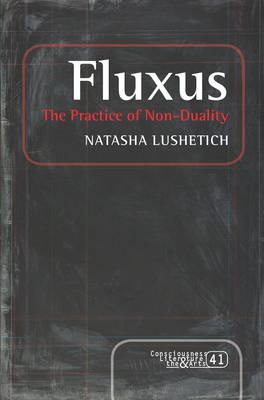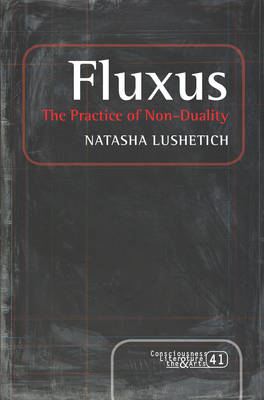
- Afhalen na 1 uur in een winkel met voorraad
- Gratis thuislevering in België vanaf € 30
- Ruim aanbod met 7 miljoen producten
- Afhalen na 1 uur in een winkel met voorraad
- Gratis thuislevering in België vanaf € 30
- Ruim aanbod met 7 miljoen producten
Zoeken
€ 128,45
+ 256 punten
Omschrijving
Focusing on the most definition-resistant art movement in history and departing from its two chief characteristics: intermediality and interactivity, this book develops an original theory of practice, the experiential philosophy of non-duality, which is the philosophy of dynamic co-constitutivity. This is done by tracing the performativity of intermedial works - works that fall conceptually between the art and the life media, such as Bengt af Klintbergs's event score: "Eat an orange as if it were an apple" - in five key areas of human experience: language, temporality, the sensorium, social rites and rituals, and systems of economic exchange.The main argument, woven with the aid of the Derridian blind tactics, the Gramscian production of social life and the Zen-derived interexpression of Kitaro Nishida, is that the practical philosophy of co-constitutivity arises from the logic of the intermedium. In pursuing this argument, the book does three things: (1) it theorises an oeuvre that has remained under-theorised due to its fundamentally non-discursive nature and in doing so reinstates Fluxus as an influential cultural, rather than a "merely" artistic paradigm; (2) it serves as a companion to thinking by doing since most Fluxus intermedia are ready-mades, and, as such, readily available in the everyday environment; and (3) it establishes the counter-hegemonic logic of fluxing while tracing its legacy in contemporary practices as diverse as the culture-jamming activism of The Yes Men, the paradoxical performance work of Song Dong and the pervasive game worlds of Blast Theory.
Specificaties
Betrokkenen
- Auteur(s):
- Uitgeverij:
Inhoud
- Aantal bladzijden:
- 288
- Taal:
- Engels
- Reeks:
- Reeksnummer:
- nr. 41
Eigenschappen
- Productcode (EAN):
- 9789042038516
- Verschijningsdatum:
- 1/01/2014
- Uitvoering:
- Paperback
- Formaat:
- Trade paperback (VS)
- Afmetingen:
- 152 mm x 229 mm
- Gewicht:
- 390 g

Alleen bij Standaard Boekhandel
+ 256 punten op je klantenkaart van Standaard Boekhandel
Beoordelingen
We publiceren alleen reviews die voldoen aan de voorwaarden voor reviews. Bekijk onze voorwaarden voor reviews.








